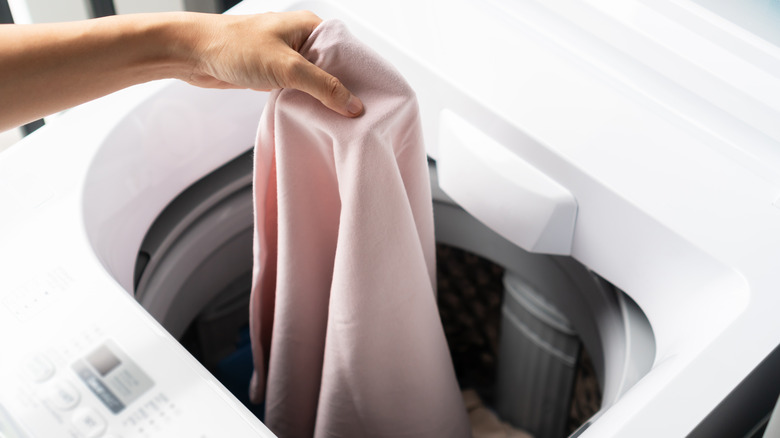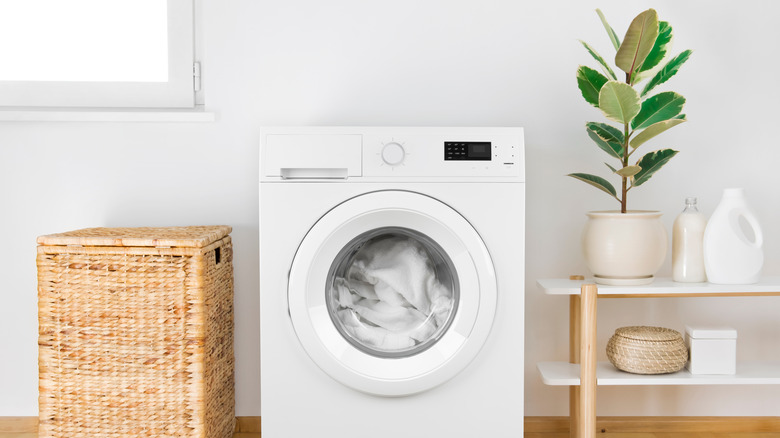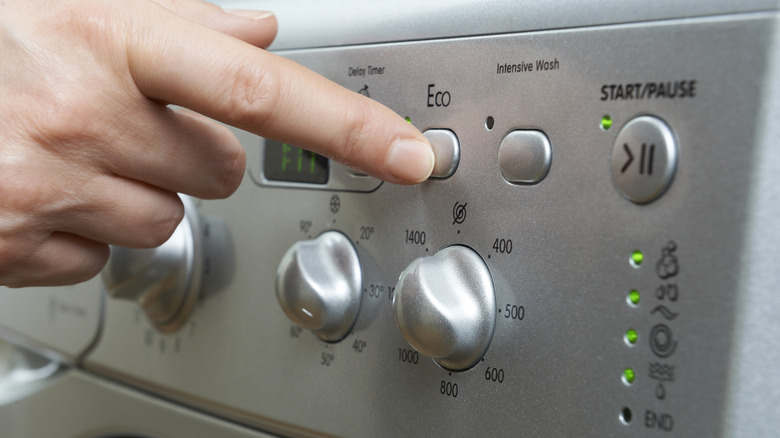What Washing Your Laundry In Warm Water Will Do To Your Clothes
Laundry day can be an anticipated event for cleaning fanatics or those who have been hanging on to their last pair of jeans for a couple of days too long. In 2019 the American Cleaning Institute conducted a survey asking folks what their favorite cleaning task was, and 24% of those asked said that it was laundry, according to ACI. The fabric companies have made it easier for folks to do laundry by putting readable care tags on the clothing.
While 33% of folks who took the survey claim they read the care tags before doing laundry, 42% sometimes read the labels, and 23% claim they never read the tags, per ACI. Reading the fabric care tags allows you to get the most use out of your clothing, making them last longer. They also help if you're first starting to learn how to do laundry and you're unsure of what water temperature to use. Each temperature can have different effects on your clothing. Most folks who don't read the labels or are starting out default to cold water, which is great since it's less damaging to clothing and conserves energy. But, what happens when you use warm water to do your laundry?
Warm water removes stains, germs, and dirt
Warm to hot water should only be used when you're washing white or lighter colored clothing since a hotter temperature will remove dirt and stains from your clothes better than cold water, according to Survival Freedom. Avoid using hot water with darker clothing because it can cause the colors to fade faster. Not only does hot water keep your white clothing white, but it also helps get rid of germs, viruses, and bacteria, per The Maids. Turning up the heat to 140 degrees Fahrenheit will do the trick, but if your washing machine can't get that hot, then you can use white vinegar.
You want to be careful around the different fabrics you put in hot water because some may be prone to shrinking. Survival Freedom claims that you should use warm water for nylon, spandex, jeans, and polyester and hot water for cotton clothing. If you don't want to do numerous loads of laundry, you can pile the fabrics into one load and use only warm water. It'll likely get the job done and prevent damaging your clothes.
Cold water conserves energy and prevents damage
If you want to help the environment or save a little more money, you can resort to cold water when doing your laundry. You should also use cold water whenever you're washing delicates and colored items or mixing colors in the wash. Cold water can still remove dirt and stains with a good detergent that targets oils, per C&W Appliance Service. If you're worried about the odors from your workout clothes or any heavy-duty grime, C&W suggests pre-soaking those in a half cup of white vinegar or starting with a pre-rinse in the washing machine.
Cold water will also prevent your clothes from wrinkling too much, making them easier to iron. While cold water can help conserve energy, it doesn't kill bacteria or germs like hot water does via Survival Freedom. Overall, it's best to use warm and hot water only when necessary and after reading proper care instructions. If you're ever unsure, stick with cold water and a good detergent.


